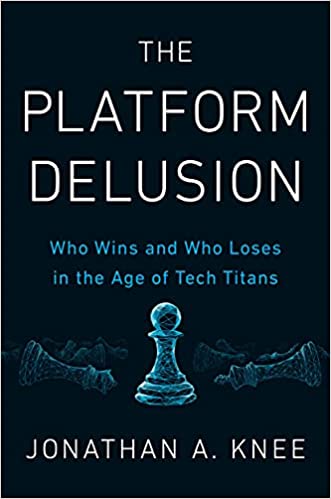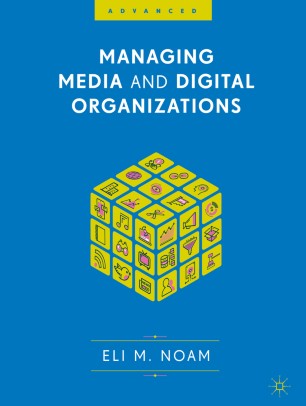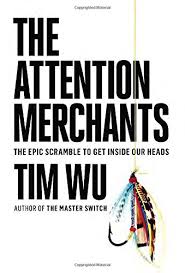Following is a selection of books published by professors affiliated with the Media and Technology Program.

Beyond Bitcoin: The Economics of Digital Currencies, Second Edition (2022)
Hanna Halaburda, Miklos Sarvary
Digital currencies are a fairly new phenomenon brought about by the spectacular rise of the internet. While Bitcoin is the most famous, there are numerous other digital currencies—from Amazon Coin to Zetacoin. Beyond Bitcoin explores the economic forces underlying the design of their features and their potential. Halaburda and Sarvary argue that digital currencies are best understood by considering the economic incentives driving their creators and users. The authors present a framework that will allow systemic analysis of this dynamic environment and support further discussion of the design of digital currencies' features and the competition in the market.
The second edition offers a deep and up-to-date analysis of the economic forces related to Bitcoin and other cryptocurrencies; provides an in-depth, rigorous analysis of what can be effectively decentralized and how this decentralization will work, and features a fully updated chapter on cryptocurrencies and new chapters on smart contracts and enterprise blockchains.

The Platform Delusion: Who Wins and Who Loses in the Age of Tech Titans (2021)
Jonathan Knee
Many think that they understand the secrets to the success of the biggest tech companies: Facebook, Amazon, Apple, Netflix, and Google. It's the platform economy, or network effects, or some other magical power that makes their ultimate world domination inevitable. Investment banker and professor Jonathan Knee argues that the truth is much more complicated--but entrepreneurs and investors can understand what makes the giants work, and learn the keys to lasting success in the digital economy.


The Content, Impact, and Regulation of Streaming Video: The Next Generation of Media Emerges (2021)
Eli Noam
Along with its interrelated companion volume, The Technology, Business, and Economics of Streaming Video, this book examines the next generation of TV—online video. It reviews the elements that lead to online platforms and video clouds and analyzes the software and hardware elements of content creation and interaction, and how these elements lead to different styles of video content.

 Managing Media and Digital Organizations (2019)
Managing Media and Digital Organizations (2019)
Eli Noam
Applies dimensions of the MBA curriculum directly relevant to the entirety of the media and digital sector; provides a comprehensive view of the functions of management across the media, communications, and information sector; utilizes case studies, models, and overviews to offer an entire MBA capstone course in one textbook.

 Media and Digital Management (2019)
Media and Digital Management (2019)
Eli Noam
Offers a primer for students in Media, Communications, Information, and Business; applies elements of a basic MBA curriculum to media management at a level that is clear, comprehensive, and appropriate for students in all fields ; utilizes case studies, models, and overviews to offer an entire basic management capstone course in one textbook.


Class Clowns: How the Smartest Investors Lost Billions in Education (2016)
Jonathan Knee
The past thirty years have seen dozens of otherwise successful investors try to improve education through the application of market principles. They have funneled billions of dollars into alternative schools, online education, and textbook publishing, and they have, with surprising regularity, lost their shirts.In Class Clowns, professor and investment banker Jonathan A. Knee dissects what drives investors' efforts to improve education and why they consistently fail. Knee takes readers inside four spectacular financial failures in education.


The Attention Merchants: The Epic Struggle to Get Inside Our Heads (2016)
Tim Wu
Feeling attention challenged? Even assaulted? American business depends on it. In nearly every moment of our waking lives, we face a barrage of messaging, advertising enticements, branding, sponsored social media, and other efforts to harvest our attention. Few moments or spaces of our day remain uncultivated by the "attention merchants," contributing to the distracted, unfocused tenor of our times. Tim Wu argues that this condition is not simply the byproduct of recent technological innovations but the result of more than a century's growth and expansion in the industries that feed on human attention.

Entertainment Industry Economics: A Guide for Financial Analysis (2015)
Harold L. Vogel
The entertainment and media industries, already important sectors of the U.S. economy, continue to grow rapidly in other countries around the world. This ninth edition of Entertainment Industry Economics continues to be the definitive source on the economics of film, music, television, advertising, broadcasting, cable, casino and online wagering, publishing, performing arts and culture, toys and games, sports, and theme parks. It synthesizes a vast amount of data to provide a clear, comprehensive, and up-to-date reference guide on the economics, financing, accounting, production, and marketing of entertainment in the United States and overseas.

Shaping Jazz: Cities, Labels, and the Global Emergence of an Art Form (2013)
Damon J. Phillips
There are over a million jazz recordings, but only a few hundred tunes have been recorded repeatedly. Why did a minority of songs become jazz standards? Why do some songs--and not others--get rerecorded by many musicians? Shaping Jazz answers this question and more, exploring the underappreciated yet crucial roles played by initial production and markets--in particular, organizations and geography--in the development of early twentieth-century jazz.

Gurus And Oracles,The Marketing of Information (2012)
Miklos Sarvary
In Gurus and Oracles, Sarvary describes the information industry--the far-flung universe of companies (e.g. Thomson Reuters, Nielsen, McKinsey & Co.) whose core business is to sell information and knowledge to decision makers. The book highlights the special characteristics of information and knowledge and analyzes the unusual behaviors of the markets for them. Sarvary shows how technology contributes to the spectacular growth of this sector and how new markets for information change our economic environment.

There's No Business That's Not Show Business: Marketing in an Experience Culture (2011)
Bernd H. Schmitt, David L. Rogers, & Karen L. Vrotsos
There's No Business that's Not Show Business shows how smart companies can use creativity, humor, and play to reach out and engage customers through a new kind of experience. Authors Bernd H. Schmitt, David L. Rogers, and Karen Vrotsosprovide winning case studies and "show business" techniques that can be used to dazzle customers, launch products, build brands, generate buzz, and build great customer relationships.

The Master Switch: The Rise and Fall of Information Empires (2010)
Tim Wu
It is easy to forget that every development in the history of the American information industry–from the telephone to radio to film–once existed in an open and chaotic marketplace inhabited by entrepreneurs and utopians, just as the Internet does today. Each of these, however, grew to be dominated by a monopolist or cartel. In this pathbreaking book, Tim Wu asks: will the Internet follow the same fate? Could the Web–the entire flow of American information–come to be ruled by a corporate leviathan in possession of "the master switch"?
Analyzing the strategic maneuvers of today’s great information powers–Apple, Google, and an eerily resurgent AT&T–Wu uncovers a time-honored pattern in which invention begets industry and industry begets empire. He shows how a battle royale for Internet’s future is brewing, and this is one war we dare not tune out.

The Curse of the Mogul: What's Wrong with the World's Leading Media Companies (2009)
Jonathan A. Knee, Bruce C. Greenwald, & Ava Seave
If Rupert Murdoch and Sumner Redstone are so smart, why are their stocks long-term losers? We live in the age of big Media, with the celebrity moguls telling us that "content is king." But for all the excitement, glamour, drama, and publicity they produce, why can't these moguls and their companies manage to deliver better returns than you'd get from closing your eyes and throwing a dart? The Curse of the Mogul lays bare the inexcusable financial performance beneath big Media's false veneer of power. By rigorously examining individual media businesses, the authors reveal the difference between judging a company by how many times its CEO is seen in SunValley and by whether it generates consistently superior profits. The book is packed with enough sharp-edged data to bring the most high-flying, hot-air filled mogul balloon crashing down to earth.

Media Ownership and Concentration in America (2009)
Eli Noam
The concentration of private power over media has been the subject of intense public debate around the world. Critics have long feared waves of mergers creating a handful of large media firms that would hold sway over public opinion and endanger democracy and innovation. But others believe with equal fervor that the Internet and deregulation have opened the media landscape significantly. In this contentious environment, Eli Noam provides a comprehensive and balanced survey of media concentration with a methodical, scientific approach. He assembles a wealth of data from the last 25 years about mass media such as radio, television, film, music, and print publishing, as well as the Internet, telecommunications, and media-related information technology, and examines 100 separate media and network industries in detail to provides a powerful summary and analysis of concentration trends across industries and major media sectors.